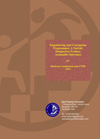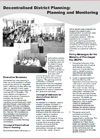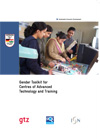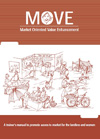BPF's commitment to the ground extends into innovations in the areas of gender, governance and livelihoods. The overlap between research and action offers unique insights into best practices and critical gaps. Consequently, our innovations are based on an understanding of the needs of the community, and executed either through partnerships or in our incubation site in Dharwad.
On behalf of the Huairou Commission and UNDP

Corruption is a major impediment to development and the achievement of the Millennium Development Goals. Undertaken in eight nations worldwide using several indicators and translators, this study documents the ways in which grassroots women in the developing world experience public-sector corruption. It voices their concerns and presents their recommendations for country-level anti-corruption initiatives. The study was launched by the UNDP at the International Anti-Corruption Conference organised by Transparency International in Brasilia in November, 2012.

For the Ministry of Panchayati Raj
Policy inputs for the Ministry of Panchayati Raj (MoPR) to recognise the autonomy and build the capacities of the local planning units, recognise social audit processes as intrinsic to ensuring community engagement in monitoring and have planning indicators that reflect process, outputs and outcomes.

For GTZ, an Indo-German bilateral technical cooperation initiative
Women currently constitute just nine per cent of students enrolled in India's industrial training institutes. To stay globally competitive with countries that are emphasising skilling across the board, and to give women access to better paid jobs, industries must build a large, technologically skilled workforce responsive to market needs. Since women constitute half the workforce, upgrading their skills is of the foremost importance.
In 2007-08, BPF undertook a study whose primary objective was to develop a gender strategy that would expand technical opportunities for women and promote their participation in vocational training in non-traditional, male dominated technical and vocational education and training institutes (TVETs).
Commissioned by GTZ, an Indo-German bilateral technical cooperation initiative, we researched technical training institutes across five states in India. Our findings shaped a five-module gender toolkit centred on gender planning, budgeting, sensitisation, implementation of gender plans, and monitoring. They revealed that open access alone does not boost the enrollment of women in TVETs. What is required is a deliberate gender strategy that entails active recruitment, adaption to the needs of women and dialogue on gender mainstreaming.

Turning the poor into entrepreneurs can radically transform their standard of living and social status. BPF's Market Oriented Value Enhancement (MOVE) methodology teaches participants to understand and enter the market through an innovative tool called a Participatory Market Appraisal.